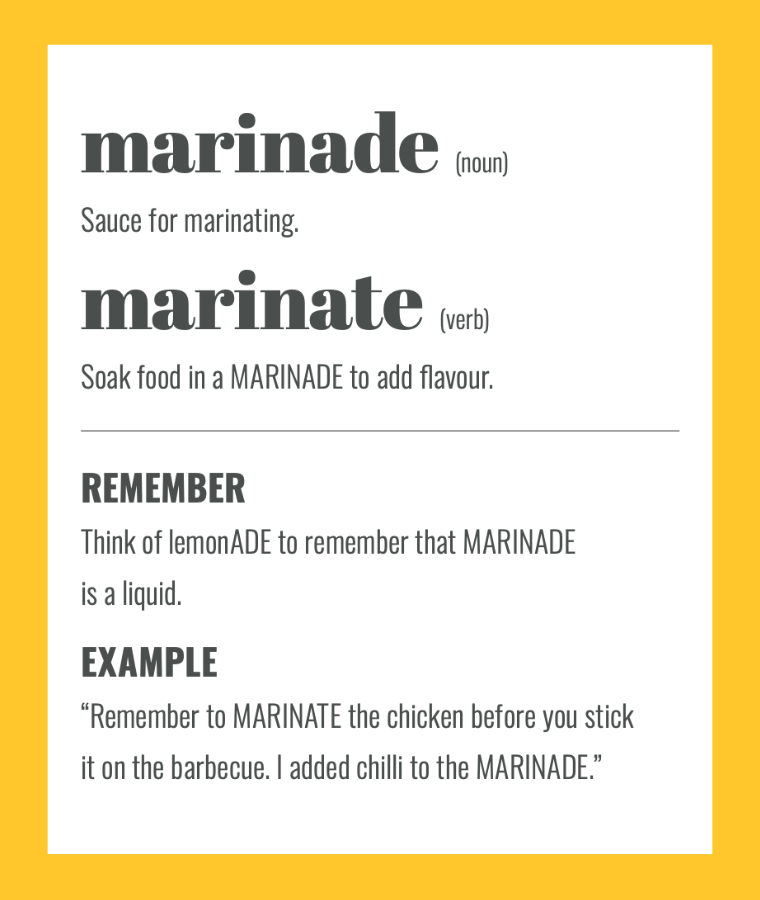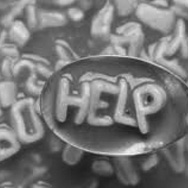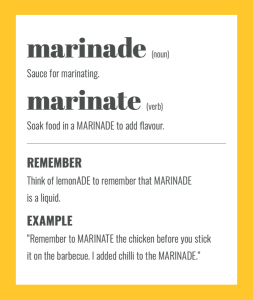Marinate vs marinade: simple tips to help you remember

MARINATE vs MARINADE – simple tips to remember the difference
MARINATE and MARINADE are easy to confuse. They may sound similar but they have different meanings. These simple tips will help you decide which word you need.
Marinate
MARINATE is a verb, meaning to soak food in a MARINADE to give it flavour and richness.
“Remember to marinate the chicken before you stick it on the barbecue!”
Marinade
MARINADE is a noun. It’s the sauce or liquid in which a dish is MARINATED, to provide flavour.
“Have you added chillis to the marinade?”
If you find it tricky to remember the difference, think of lemonADE to remember that marinADE is a liquid.
I hope this helps you to remember the difference between MARINATE and MARINADE.
Want more writing tips?
For more language love, join my Clever Copy Club and get monthly updates direct to your inbox. Alternatively, email me, follow me on Twitter, connect on LinkedIn or like my page on Facebook.
Get more tips in The Little Book of Confusables
8 tips and tricks to improve your writing in just 8 minutes

The English language is full of quirks that can trip you up – and when you’re writing for business, mistakes can cost you sales.
These simple tips will stop you falling flat on your face.
Tip 1
A lot, as well, thank you, no one and all sorts are all two words.
(Unless you happen to be writing about Liquorice Allsorts, which – let’s face it – is unlikely.)
Tip 2
Don’t use here’s (here is: singular) or there’s (there is: singular) when you mean here are or there are: plural.
“Here are tips”, not “here’s tips”.
Tip 3
Too means also (“can I come, too?”) or excessively (“that’s too loud”).
To indicates direction (“I’m going to London”) or shows the infinitive form of a verb (“I’m going to have some lunch”).
Two is always a number.
Tip 4
It’s usually wrong to say you have two choices – you have one choice, with two (or three, or ten) alternatives.
Tip 5
An ellipsis is always three dots – no more, no less (and never a random number just to fill a gap).
Tip 6
Stop confusing you’re and your.
You’re is short for ‘you are’.
Your means belonging to you.
“You’re driving to town in your car.”
Tip 7
Blame pronunciation for this one. Saying could’ve, would’ve, and should’ve often leads to writing could of, would of, should of – which is wrong.
Always write could have, would have, should have.
Tip 8
Use fewer for things you can count, and less for things you can’t. Less food = fewer calories.
Ditto number (for things you can count) and amount (for things you can’t).


